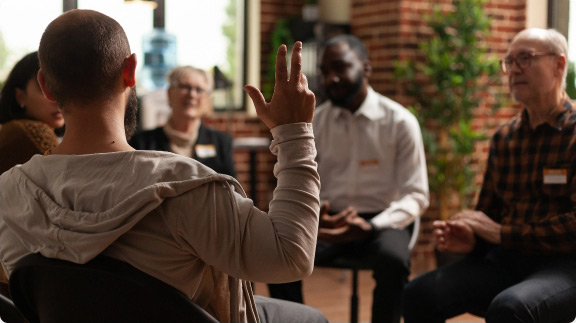Here’s how you can help:
You have the power to help a friend or family member who is experiencing depression, anxiety or other mental health challenges. Step Up by following these simple steps:
- Read Up on warning signs for suicide and symptoms of mental illness.
- Speak Up, start the conversation and talk openly about what they’re experiencing.
- Listen Up and really hear what they’re saying and feeling.
- Link Up with local resources. Offer to get help together.
- Follow Up and offer continued support.






